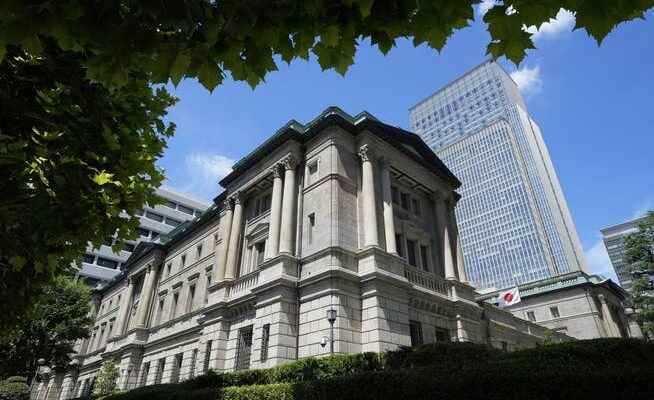Low interest rates, low demand and low inflation: Japan is not thinking of raising interest rates and is sticking to its own monetary policy.
The Bank of Japan has not yet hiked interest rates.
Japan’s government braces itself against the rapid fall of the Japanese yen with an intervention in the foreign exchange market. The yen, which had been weak for months, came under further pressure on Thursday after the US central bank’s interest rate hike again and fell to one of the weakest values in the past 30 years.
Unlike other central banks, the Bank of Japan has not yet increased interest rates. Thus, the interest rate differential between Japan and the USA increasingly determines the exchange rate.
Trend is not fundamentally broken
Shortly after the yen plummeted again, Japan’s finance ministry on Thursday intervened and bought its own currency in the foreign exchange market. The central bank sees this as a strong signal to the market that one-sided and rapid movements are not welcome. However, by no means all those involved are under the illusion that this intervention will permanently break the depreciation of the yen.
One reason is that, unlike the last currency intervention in 2011, the Treasury Department is now alone on the international stage. At that time, Japanese and foreign companies had transferred large sums of money from abroad to Japan in order to be able to pay for repairs to the damage caused by the Fukushima disaster. This had massively boosted demand for the yen and caused the currency to shoot up.
This time, however, the situation is different. Yen weakness is the downside of dollar strength, and since the US government has an interest in a strong dollar, unilateral Japanese intervention has limited clout.
Central bank rules out monetary tightening
The Japanese currency has long been burdened by the monetary policy of the Japanese central bank, which remained true to its monetary policy special path on Thursday. While other central banks are raising interest rates, the Bank of Japan is keeping its low interest rate policy unchanged. The interest rate for short-term government bonds is still at minus 0.1 percent and for ten-year bonds at a maximum of 0.25 percent.
The Bank’s Monetary Policy Committee said it would not hesitate to further ease monetary policy should the need arise. Japan does not have to leave the world of negative interest rates just because other countries have done so, said central bank governor Haruhiko Kuroda. “In these countries, inflation rates have risen to 8 to 10 percent. The situation is completely different from ours.”
Even after the end of Governor Kuroda’s term of office in April 2023, no turnaround is expected; inflation and the economic recovery are too weak in a global comparison. While prices in the US, driven by high demand, recently rose by 8.3 percent, the figure in Japan was just 2.8 percent in August.
That is higher than the inflation target of two percent. But without the sharp rise in energy and food prices, it was only 1.6 percent. In addition, many economists predict that the inflation rate could fall again in the coming year.
